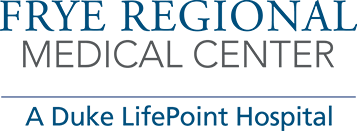Prostate Cancer
Prostate Cancer is the most common cancer in American men, with over 183,000 cases diagnosed each year, according to the Centers for Disease Control (CDC). Men older than 40 years are at a higher risk of contracting prostate cancer.
The prostate is a gland found only in men. It is located just below the bladder and in front of the rectum. It contains cells that produce some of the fluid (semen) that protects and nourishes sperm, and the urethra, the tube that carries urine, runs through its center. The size of the prostate varies with age; in younger men, it is the size of a walnut, while, in older men, it is typically much larger.
What Are the Symptoms of Prostate Cancer?
Prostate cancer may not cause signs or symptoms in its early stages, however, in its more advanced stages, symptoms can include:
- Blood in the urine
- Blood in the semen
- Bone pain
- Decreased force in the stream of urine
- Discomfort in the pelvic area
- Swelling in the legs
- Trouble urinating
What Are the Risk Factors for Prostate Cancer?
According to the American Cancer Society, the following risk factors are associated with prostate cancer:
- Age: Age is the strongest risk factor for prostate cancer. The chance of getting prostate cancer goes up quickly after a man reaches age 50, and nearly two out of every three prostate cancers are found in men over the age of 65.
- Race: Prostate cancer is more common in African-American men than in men of other races. African-American men are also more likely to have a more advanced disease when it is found and are more likely to die of the disease. Prostate cancer occurs less often in Asian-American and Hispanic/Latino men than in non-Hispanic whites.
- Nationality: Prostate cancer is most common in North America and northwestern Europe and less common in Asia, Africa, Central and South America. More screening (testing of people who don't have any symptoms) in some developed countries may, in part, account for this.
- Family history: Men with close family members (father or brothers) who have had prostate cancer are more likely to get it themselves, especially if their relatives were young when they developed the disease.
- Genes: Scientists have found some inherited genes that seem to raise prostate cancer risk, but they likely account for only a small number of overall cases.
- Diet: Men who eat a lot of red meat or high-fat dairy products may have a greater risk of developing prostate cancer. These men also tend to eat fewer fruits and vegetables. Doctors are not sure which of these factors causes the risk to go up.
- Obesity: While the link between prostate cancer and obesity is still being researched, some studies have found that obese men may be at greater risk of having more advanced prostate cancer and of dying from prostate cancer.
- Exercise: Exercise has not been shown to reduce prostate cancer risk in most studies, but some studies have found that high levels of physical activity, especially in older men, may lower the risk of advanced prostate cancer.
- Smoking: A recent study linked smoking to a small increase in the risk of death from prostate cancer. This is a new finding and requires more research.
How Can Prostate Cancer Be Prevented or Delayed?
- Eat fewer calories and exercise more so that you maintain a healthy weight even as you age.
- Try to keep the amount of fat you get from red meat and dairy products to a minimum.
- Watch your calcium intake. Do not take supplemental doses far above the recommended daily allowance. Some calcium is okay but avoid taking more than 1,500 mg of calcium a day.
- Eat more fish. Evidence from several studies suggests that fish can help protect against prostate cancer because they have “good fat,” particularly omega-3 fatty acids. Avoid trans-fatty acids, like those found in margarine.
- Try to incorporate tomatoes that are cooked with olive oil, which has also been shown to be beneficial in preventing prostate cancer, and cruciferous vegetables (like broccoli and cauliflower) into several of your weekly meals. Soy and green tea may also prove helpful.
- Avoid smoking and limit alcohol consumption.
- Seek medical treatment for stress, high blood pressure, high cholesterol and/or depression.
- Avoid over-supplementation by taking multi-vitamins, if necessary. Too many vitamins, especially folate, may fuel the cancer.
- Relax and enjoy life. Reducing stress in the workplace and home can improve your survivorship and lead to a longer, happier life.
- If you are age 50 or older, or if you are age 40 or older and African-American or have a family history of prostate cancer, talk to your physician about an annual rectal examination and PSA (prostate-specific antigen) blood test.
To learn more about preventing and/or treating prostate cancer, talk to your physician or visit www.cancer.org.
Stereotactic Body Radiotherapy (SBRT)
Discover advanced treatment options for low or intermediate-risk prostate cancer at Frye Regional Medical Center.
This therapy, called stereotactic body radiation therapy (SBRT), precisely delivers high doses of radiation directly to cancer cells, while also avoiding healthy tissue and non-cancerous cells. By avoiding radiation exposure to nearby healthy tissue, it lowers the likelihood of complications caused by toxicity of the bladder, sex organs and rectum.
In addition to lower toxicity in healthy cells near the tumor, SBRT also has a remarkably shorter treatment duration than traditional radiotherapy. Previous treatment methods required lower doses over 44 sessions, while SBRT is completed in just five sessions.
Contact Us
For more information or to speak with a nurse navigator about your early detection plan, call the Frye Cancer Support Center at 828.315.3596, option 2.
Find A Provider
Want to schedule an appointment with one of our providers?
